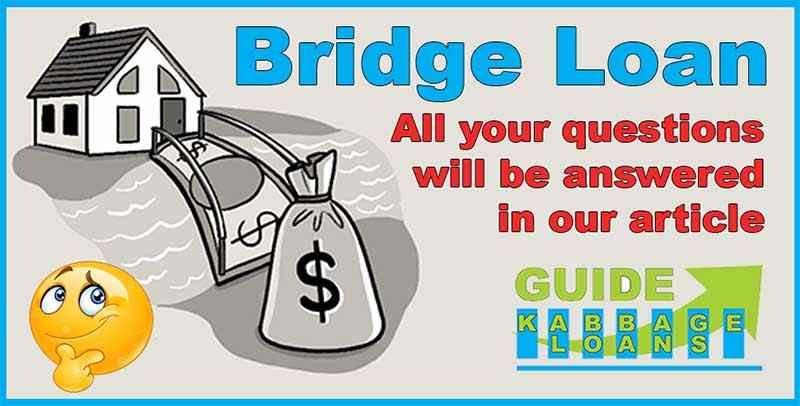A reverse mortgage can be an attractive option for Texas homeowners aged 62 and older looking to convert their home equity into cash without selling their property. This financial product allows homeowners to receive payments based on their home’s value, which can be used for various expenses. In this comprehensive guide, we will explore how does a reverse mortgage work in Texas, its benefits, eligibility requirements, and potential drawbacks.
What is a Reverse Mortgage in Texas?
A reverse mortgage in Texas is a type of loan available to homeowners, usually aged 62 and older, allowing them to access the equity in their homes. Unlike traditional mortgages, where borrowers make monthly payments to the lender, a reverse mortgage provides the homeowner with funds. These funds can be received as a lump sum, a line of credit, fixed monthly payments, or a combination of these methods. The loan is repaid when the homeowner moves out of the property or passes away.
Can You Get a Reverse Mortgage in Texas?
Yes, you can get a reverse mortgage in Texas. The Home Equity Conversion Mortgage (HECM) is a type of reverse mortgage that has been available since 1989. It is insured by the federal government through the Federal Housing Administration (FHA), which is part of the U.S. Department of Housing and Urban Development (HUD).
How Does a Reverse Mortgage Work in Texas?
A reverse mortgage in Texas is a loan option for homeowners aged 62 and over that allows them to borrow against the equity in their homes. Unlike a traditional mortgage where you make monthly payments to the lender, with a reverse mortgage, the lender pays you. You can receive the loan proceeds as a lump sum, monthly payments, a line of credit, or a combination of these options, which can help supplement your retirement income.
The amount you owe on a reverse mortgage increases over time because interest and fees are added to the loan balance monthly. However, you are not required to make monthly payments. Instead, the loan is repaid when you sell the home or pass away. Homeowners must continue to pay property taxes and homeowners insurance.
To qualify, you must apply and provide the necessary documentation to the lender, who will determine your borrowing limit based on several factors, including the value of your home. The loan proceeds are generally tax-free, and interest does not accrue until the home is sold.
One important aspect is that no matter how high the loan balance gets, neither you nor your heirs will have to repay more than the home’s appraised value or sale price. It is crucial to understand the terms, seek advice from financial professionals, and compare offers from reputable lenders before deciding on a reverse mortgage.
What Age Can You Get a Reverse Mortgage in Texas?
To be eligible for a reverse mortgage in Texas, homeowners must be at least 62 years old. The age of the youngest borrower on the title determines the loan amount and the loan eligibility that can be accessed.
Reverse Mortgage Texas Pros and Cons:
Pros:
- Access to Home Equity: Reverse mortgages provide a means for homeowners to access the equity they have built up over time.
- No Monthly Payments: Borrowers are not required to make monthly mortgage payments. Repayment is typically deferred until the borrower no longer occupies the home.
- Flexibility in Fund Distribution: Homeowners can choose to receive funds as a lump sum, line of credit, monthly payments, or a combination.
- Tax-Free Proceeds: Reverse mortgage proceeds are generally tax-free, as they are considered loan advances rather than income.
- Retain Home Ownership: Homeowners retain ownership of their homes and can continue living in them as long as they fulfill the loan requirements.
Cons:
- Accrued Interest and Fees: The loan balance increases over time due to accruing interest and fees, potentially reducing the equity available to heirs.
- Limited Inheritance: The loan must be repaid, which may affect the amount of inheritance that can be passed on to heirs.
- Potential Impact on Government Benefits: A reverse mortgage may impact eligibility for certain government benefits, such as Medicaid or Supplemental Security Income (SSI). It’s important to consult with a financial advisor to understand the implications.
- Property Maintenance: Borrowers are responsible for maintaining the property, paying property taxes, and keeping up with insurance payments.
Reverse Mortgage Rules in Texas:
Texas has specific rules and regulations governing reverse mortgages to protect borrowers. These rules include mandatory counseling by a HUD-approved counselor, limits on loan amounts, and restrictions on the types of reverse mortgage products available.
What is the Limit on Reverse Mortgages in Texas?
In Texas, the limit on reverse mortgages is influenced by the loan-to-value ratio, which restricts lenders from loaning more than 80% of the home’s value. Additionally, Texas law mandates a time restriction for mandatory counseling, requiring lenders to wait at least five days after borrowers complete the necessary reverse mortgage counseling before finalizing the loan.
Texas Reverse Mortgage Foreclosure:
Reverse mortgage foreclosure can occur if borrowers fail to meet certain obligations, such as paying property taxes, maintaining insurance, or fulfilling loan requirements. Borrowers must stay informed about their responsibilities and fulfil them to avoid foreclosure.
Reverse Mortgage Qualifications Texas:
To qualify for a reverse mortgage in Texas, homeowners must meet certain criteria. These qualifications include:
- Being at least 62 years old
- Owning the home outright or having a low mortgage balance
- Using the home as the primary residence
- Demonstrating the ability to pay property charges, such as taxes, insurance, and maintenance costs
- Attending mandatory counseling with a HUD-approved reverse mortgage counselor
Reverse Mortgage Lenders in Texas
While the organizations you listed are involved in financial counseling and assistance, not all of them specifically specialize in reverse mortgages. But now, I can provide you with a list of well-known and reputable reverse mortgage lenders and companies in Texas:
- Reverse Mortgage Funding LLC: Website: https://www.reversefunding.com/
- American Advisors Group (AAG): Website: https://www.aag.com/
- One Reverse Mortgage: Website: https://www.onereversemortgage.com/
- Finance of America Reverse LLC: Website: https://www.fareverse.com/
- Reverse Mortgage Solutions, Inc.: Website: https://www.rmsnav.com/
These are just a few prominent companies in the reverse mortgage industry. It’s essential to conduct thorough research, compare terms and conditions, and consult with a financial advisor or counselor to determine the best option for your specific needs.

Reverse Mortgage Rates in Texas:
Reverse mortgage rates in Texas generally feature variable interest rates. Currently, these rates are around 8.94% per annum, with a comparison rate of approximately 9.43% per annum. These rates can fluctuate based on market conditions and individual lender policies.
To determine the available equity in your home, which can influence your reverse mortgage terms, you can use the Reverse Mortgage Calculators available on many lender’s websites. This free tool helps homeowners assess their equity and better understand their potential reverse mortgage options. By doing so, you can make a more informed decision regarding your reverse mortgage.
Do both spouses have to be 62 for a reverse mortgage in Texas?
No, both spouses do not have to be 62 for a reverse mortgage in Texas.1 If one spouse is under 62, the older spouse can still get a reverse mortgage. The younger spouse, referred to as the “non-borrowing spouse,” won’t be on the title at the time of closing and won’t have access to the line of credit if the older spouse passes away.
However, they have 90 days to transfer the property into their name and can remain in the home for the rest of their life. This rule ensures the younger spouse is protected, though it might lower the funds available through the reverse mortgage.
Conclusion
Understanding reverse mortgages can be complex, but they offer a valuable option for Texas homeowners aged 62 and older to convert their home equity into cash. While the benefits, such as no monthly payments and tax-free proceeds, are attractive, it’s crucial to be aware of the potential drawbacks like accrued interest and impacts on inheritance.
By seeking advice from financial professionals and thoroughly researching lenders, homeowners can make informed decisions to supplement their retirement income with a reverse mortgage.
Faq’s
Where can I find reverse mortgage companies and lenders in Texas?
Several reputable reverse mortgage companies and lenders operate in Texas. It's advisable to research and contact multiple lenders to explore available options.
How do reverse mortgage rates in Texas vary?
Reverse mortgage rates in Texas can vary depending on the lender, loan product, and prevailing market conditions. It's recommended to compare rates from different lenders to secure favorable terms.
Thanks for your visit.
(How does a reverse mortgage work in Texas?)
Disclaimer: This article is for informational purposes only and does not constitute financial advice. Always consult with a qualified financial advisor or mortgage professional before making any decisions related to reverse mortgages. The information provided is based on general guidelines and may not apply to your specific situation.
- Source Link [↩]





